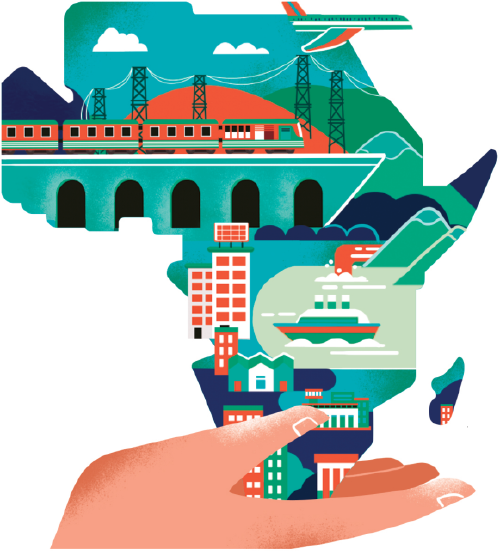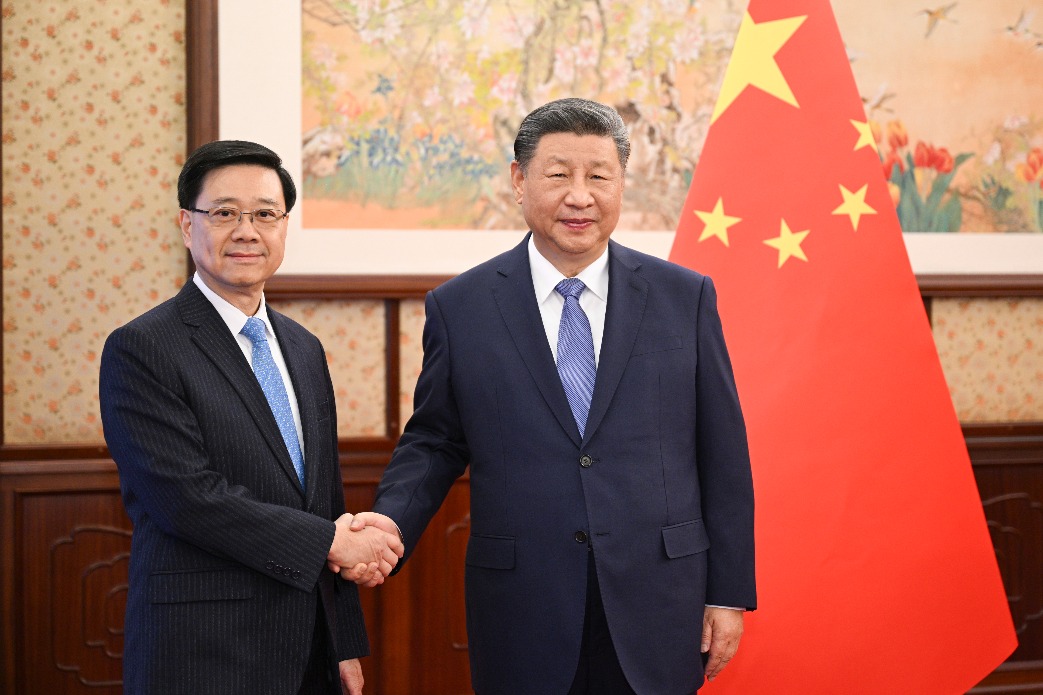Collaborative evolution


By fostering partnerships that prioritize capacity-building and long-term development, China can align its investments with the development aspirations of African countries
The evolution of China-Africa relations reveals a compelling narrative of growth, opportunity and challenges. While initial engagements focused on infrastructure and extractive industries, recent developments signal a transformative phase, influenced by the Belt and Road Initiative. This framework, often heralded as a beacon for South-South cooperation, seeks to elevate China's role from a development partner to a strategic ally capable of addressing global challenges collaboratively.
However, as the BRI expands in a rapidly changing global environment, it must demonstrate its effectiveness in addressing the emerging challenges particularly related to sustainability, equity and the fostering of mutual benefits amid growing geopolitical complexities.
China's engagement with Africa is evolving against a backdrop of shifting global dynamics. The intensifying rivalry between the United States and China, exacerbated by potential US policy retrenchments on climate action and foreign aid, offers African nations leverage to negotiate more favorable terms both with foreign investors and with donor governments. This strategic positioning could drive South-South cooperation to align more closely with Africa's sustainable development goals, particularly in areas such as climate adaptation, mitigation and natural resource management.
Yet, concerns about debt sustainability are growing. African nations' growing indebtedness has reignited debates about the ethics, transparency and efficacy of existing financing models in South-South cooperation. Critics cite the risk of "debt traps "while emphasizing the urgent need for greater transparency, accountability and concessionality from all external financing sources. Recent reports from the International Monetary Fund and the World Bank also advocate for accompanying reforms that can bolster governance in resource-rich African states. Such measures would not only reduce financial risks but also attract private capital on more manageable terms essential for long-term development.
Not unlike Western financed investments, Belt and Road projects in Africa have not been immune from criticism for their environmental and social consequences. Reports of deforestation, biodiversity loss and labor rights violations underscore the need for stronger safeguards. However, these challenges also present opportunities. Africa's pivot toward green development, coupled with global trends such as carbon border taxes, suggests a recalibrated approach from China. By elevating the priority of environmental sustainability into South-South cooperation, China can position itself globally as a champion of green innovation, aligning its investments with Africa's climate resilience and sustainable growth aspirations.
The global race for rare minerals highlights Africa's strategic importance. The increasing focus on minerals critical for the clean energy transition presents both opportunities and challenges for South-South cooperation. With actors such as the US and European Union member states eyeing Africa's resource wealth, China must navigate this landscape carefully. A balanced approach, emphasizing technology transfer and value chain development, could help Africa harness its resources for sustainable industrialization. This strategy aligns with the African Union's Agenda 2063, which envisions a continent moving beyond resource dependence to diversified economic growth.
China's recent diversification efforts are noteworthy. Investments in digital infrastructure, particularly in Ethiopia and Kenya, demonstrate a shift from extractive industries to sectors such as technology and healthcare. These initiatives highlight the potential for South-South cooperation to catalyze resilience and independence, especially in the wake of the COVID-19 pandemic. By supporting digital sovereignty and health security, China can foster partnerships that prioritize capacity-building and long-term development.
A defining feature of modern South-South cooperation is the growing agency of African nations. Countries across the continent are leveraging platforms such as the African Continental Free Trade Area to shape trade and investment frameworks that align with regional priorities. This proactive stance challenges traditional donor-recipient dynamics, paving the way for equitable partnerships and greater continental self-reliance.
African governments are increasingly setting conditions for collaboration, emphasizing technology transfer, local capacity-building and shared governance. For instance, partnerships within the BRI framework are beginning to reflect African aspirations for integrated trade and industrialization. By aligning with initiatives such as the AfCFTA, China can ensure that South-South cooperation remains relevant and responsive to Africa's evolving needs.
The next phase of the BRI must address previous shortfalls while embracing inclusive growth and improved governance. Transparent, socially responsible, and environmentally friendly practices are not merely ethical imperatives — they are strategic necessities. By integrating these principles, China can align its projects with Africa's development aspirations and frameworks, enhancing both impact and perception.
Expanding digital and health cooperation offers another pathway for strengthening South-South cooperation. The COVID-19 pandemic underscored the fragility of health systems across the Global South, while the rapid adoption of digital technologies highlighted the potential for leapfrogging traditional development hurdles. China's investments in these sectors can build resilience and reduce dependence on external systems, fostering genuine partnerships grounded in mutual benefit.
The dual interest of China and the US in Africa's mineral wealth underscores the continent's centrality to global energy transitions. African leaders must leverage this interest to negotiate terms that advance regional industrialization and clean energy objectives. For example, North African states are exploring solar and wind projects to supply electricity to Europe. These initiatives exemplify how Africa can position itself as a leader in green innovation, benefiting from South-South cooperation frameworks that prioritize sustainable development.
China's success as a global leader in South-South cooperation hinges on its ability to dispel any perceptions that its presence might be nothing more than a 21st century version of neo-colonialism. To achieve this, China must strengthen its commitment to a leadership that prioritizes collaboration over mercantilism. Publicly committing to enhanced global partnerships, especially in addressing climate change, will elevate China's standing in the Global South and beyond.
The future of South-South cooperation lies in fostering partnerships that transcend transactional relationships. This requires a shift from resource-centric engagements to diversified investments that help move more African economies up the value chain thereby reflecting Africa's regional aspirations.
As China, the US and other major powers vie for influence in Africa, African leaders have a unique opportunity to shape South-South cooperation frameworks that align with their development priorities. By leveraging external interests strategically, Africa can advance its industrialization, green energy transition and digital transformation. This vision, rooted in equity and sustainability, represents the true promise of South-South cooperation.
China's partnership with Africa is at a crossroads. By embracing meaningful reform and responding to contemporary challenges, China can foster a new era of collaboration — one that is ambitious, responsible and reflective of today's development imperatives. Such a partnership would not only redefine South-South cooperation, but also solidify China's role as a strategic ally in the Global South.
Hany Besada is a visiting senior fellow at the Firoz Lalji Institute for Africa at the London School of Economics and Political Science and a senior fellow with the African Center for Economic Transformation. Joseph Ingram is chairman of London Growth Capital, a fellow of the Canadian Global Affairs Institute, former president of the North-South Institute, and former World Bank special representative to the United Nations and the World Trade Organization. The authors contributed this article to China Watch, a think tank powered by China Daily. The views do not necessarily reflect those of China Daily.
Contact the editor at [email protected].































